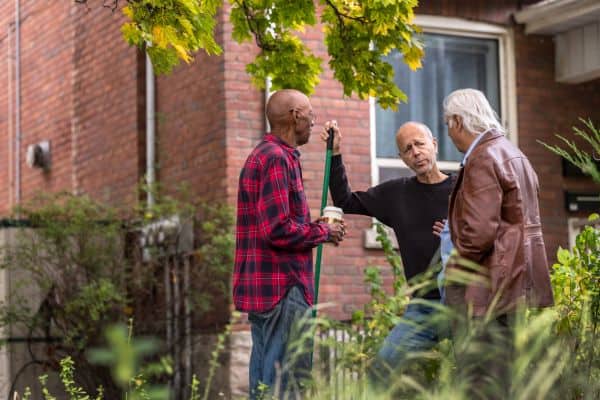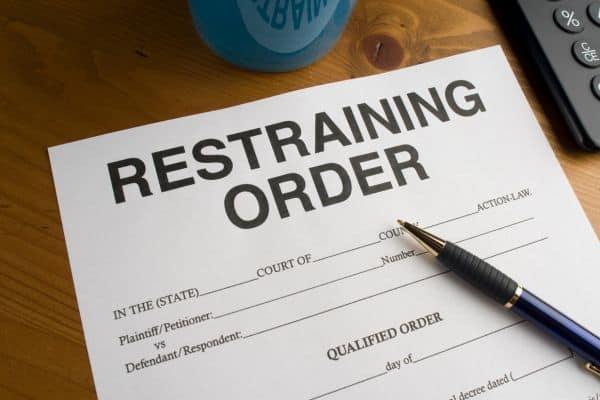This page may contain affiliate links. If you click and buy, we might get a small commission at no cost to you.
Getting along with your neighbors, or at least being able to happily ignore each other, is important for a peaceful home. However, sometimes we encounter neighbors who can be disruptive, disrespectful, or are even known for bullying others. This scenario can be complicated and emotionally demanding, which is why some people need simple guidance on how to deal with a bully neighbor.
This short article will help you tackle this issue by offering a few suggestions for how to do it properly and respectfully.
How to deal with a bully neighbor
To handle challenges such as these well, you need to be tactful, assertive, and knowledgeable. Don’t let yourself be a doormat or be steamrolled by a bully. Let’s take a closer look at some of the strategies for dealing with a bullying neighbor in an effective way.
1. Document incidents

The first step in dealing with a bullying neighbor is to record instances. Record the date, time, and place of every incident, as well as a thorough account of what happened.
This could include specific details about the neighbor’s comments or deeds, any bystanders, and how the incident affected you or your family. If there’s physical evidence like property damage, take photographs or videos.
It’s also essential to record any attempts you’ve made to resolve the issue, such as conversations or written communication. This log serves as a factual record of the bullying, providing a timeline and context.
This evidence may be crucial in supporting your claims and pursuing justice in serious situations that require law enforcement or legal action.
2. Install security cameras

Installing security cameras is effective when dealing with a bullying neighbor, especially if their behavior involves trespassing or vandalism. Cameras can discourage bad behavior and also provide solid proof of any wrongdoing.
To ensure effectiveness, place the cameras in strategic locations such as your front yard, driveway, or any areas where incidents have happened before.
Make sure to follow local laws and regulations regarding the use of surveillance cameras, as some jurisdictions have privacy laws that limit their use.
The footage captured can be used to support your claims if you decide to involve law enforcement or take legal action, providing convincing evidence of your neighbor’s behavior.
Security camera’s can be purchased and installed by the homeowner fairly cheaply and easily these days with the ability to stream directly to your phone even when you’re away. Here’s an example of a home security camera you can get on Amazon.
3. Communicate assertively, but calmly

Communication can be a powerful tool in resolving issues with a bullying neighbor. If you feel safe and comfortable, approach them in a non-confrontational manner and express your concerns.
Be assertive but calm, emphasizing the behaviors that are causing distress and asking them to stop. To avoid an argument, it’s better to concentrate on what they did rather than who they are.
Instead of calling someone a bully, you can tell them how their actions make you feel and ask them to stop. For example, “When you do X, it makes me feel Y. Could you please stop?” Using “I” statements focuses on your feelings instead of blaming others, making the conversation more productive.
Just bear in mind that your safety should always come first; if your neighbor has a history of violence or unpredictable conduct, it could be wiser to involve a third party or the police.
4. Seek mediation

If talking to your neighbor directly hasn’t worked or isn’t possible, mediation can be a helpful way to deal with a bullying neighbor. A mediator is someone who helps you and your neighbor reasonably talk to each other to solve your problem without fighting. This process allows both sides to share their worries and collaborate to find a solution that works for both of them.
Mediators don’t make decisions for people but help them have a positive conversation by encouraging understanding and empathy. Some communities offer free or low-cost mediation services, and some professionals specialize in neighbor disputes.
Mediation can be a less aggressive and more peaceful dispute resolution technique since it encourages communication and negotiation, which can result in a long-term solution to the problem.
5. Involve the authorities

If your neighbor keeps bullying you and it gets worse or turns into illegal behavior, you may need to involve the authorities. Depending on the severity and nature of the bullying, you should report the incidents to your local law enforcement agency or a more specialized agency.
When you create a report, give them all the evidence you have collected, such as written records of incidents, photos, or videos. Authorities can take action in different ways, such as giving a warning to the neighbor or pressing charges in serious cases.
Don’t hesitate to involve law enforcement if you feel unsafe or your neighbor is violating your rights. They’re there to maintain order, ensure safety, and are responsible for investigating and taking action to stop bullying.
6. Get a restraining order

If your neighbor is still acting violently or making threats toward you, seeking a restraining order, also known as a protection order, may be the best line of action. A restraining order is a legal document issued by a court that restricts the bullying neighbor from certain actions, such as coming near you or your property.
The way to get a restraining order may differ depending on where you live, but usually, you need to fill out a form and show proof of the harassment or threats to the court. This is where your documented incidences and any video evidence could be useful. If the court agrees to the order, the bully could face severe legal consequences for breaking it.
It’s best to talk to a lawyer about the process and standards so you can understand them better and protect your safety and legal rights.
7. Seek support from other neighbors

Asking for help from other neighbors can be a good way to handle a bully in your neighborhood. Your neighbors might be facing the same problem as you and could be willing to help you solve it. If more than one person confirms the bully’s behavior, it can increase the chances of authorities or landlords taking action and believing your claims.
When a bully has been bothering the whole neighborhood, a complaint from a group can be more effective than just one person speaking up. Also, having your neighbors’ support can make you feel less alone when dealing with the bully. Be respectful and tactful when approaching your neighbors, as they may have different experiences or perspectives on the situation.
Summary
Dealing with a bullying neighbor can be a challenging and stressful experience. It’s important to stay calm, write down what happened, and know what your rights are. When necessary, use assertive communication, seek mediation, or involve authorities. Talk to your landlord if you’re renting and, in severe situations, think about getting a restraining order. Make sure you don’t isolate yourself and reach out to your community for help as you go through this tough time.



